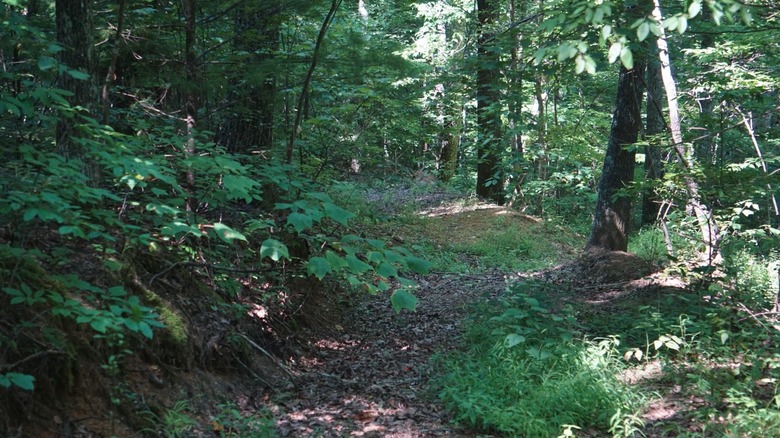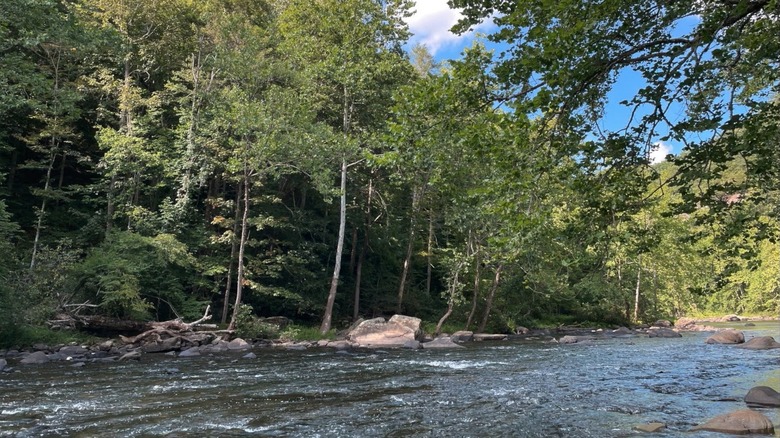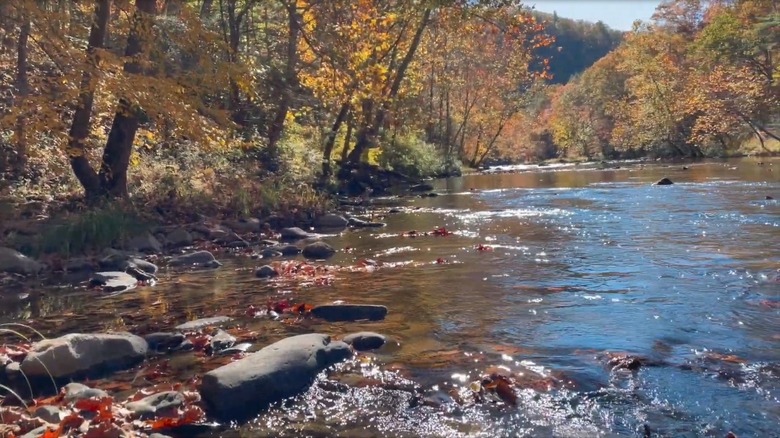YouTube/David Kuroski
If you love hiking and being out in nature, you’re probably someone who loves national parks. America’s park system is wonderful, preserving swathes of the most beautiful parts of the country and protecting their features and the flora and fauna that live in them. Some U.S. national parks, like Yellowstone National Park, are known all over the world and attract visitors all year long. Other parks are small, and you might even have parts of them to yourself.
One lovely national park sits on a river in Pipestem, West Virginia, about 70 miles southeast of Charleston, in the southern Appalachian Mountains. Bluestone National Scenic River Park was established in 1988 and covers a 10.5-mile stretch of the Bluestone River, which gets its name from the deep blue limestone of the riverbed. Not only is it beautiful, but it’s open 24/7, including holidays, and it’s free to get in. Let’s pay a visit to this pretty national park, see what to do there, and what you need to know before you go.
Hiking along the Bluestone National Scenic River Park

David Kuroski / YouTube
The Bluestone River, or the Momongosenka (“Big Stone River”) as it was originally named by early Native American residents, has been inhabited since the time of the last Ice Age and has been home to tribes like the Cherokee, the Shawnee, and the Delaware. Later in its history, the area was the site of the town of Lilly, which was settled in the 18th century but condemned at the beginning of the 20th century when construction on the Bluestone Dam started. Buildings and even cemeteries were moved or destroyed. Nothing remains now other than a few foundations.
These days, the park has a gorgeous 9.5-mile hiking path that’s moderately difficult, called the Bluestone Turnpike Trail, and follows an old road that goes along the river. On the south end of the path, you’ll find connections to Pipestem Resort State Park’s Farley Loop Trail and River Trail if you want to extend your hike.
One essential thing to keep in mind as you hike is that, during hunting season, you should wear blaze orange to make sure you’re visible and recognizable as a human. Another is to note that there are animals that can harm you here, like ticks as well as copperhead and timber rattlesnakes, so watch where you place your limbs. Please pack in and out to keep this place in great shape for your fellow travelers.
Navigating the river and the creatures you might see

David Kuroski / YouTube
In addition to the animals we mentioned, you might find yourself spotting eastern box turtles, grouse, turkeys, bears, bobcats, bald eagles, deer, kingfishers, great blue herons, and in the river, smallmouth bass, bluegill, and catfish. If you’re lucky, you may even spot a red eft, which is the juvenile form of a red-spotted newt. If you want to fish, you just need to have a West Virginia fishing license. This is a river, so of course, people want to boat on it. You are permitted to take canoes out on the river, but note that the water isn’t always high enough for boats. Check here before you go to find out if the river levels are favorable for your activities.
Another consideration for your visit is the temperature. The weather here can hit the upper 80 degrees Fahrenheit in the summer but only hits the mid-40s during the winter, and fires are prohibited. Though this park is open all the time, you are not permitted to camp. Finally, use your feet, take your bike, or even ride a horse on the trail, but don’t drive your off-road vehicles anywhere in the park. There is a hefty fine, and you could even face jail time if you do it.

